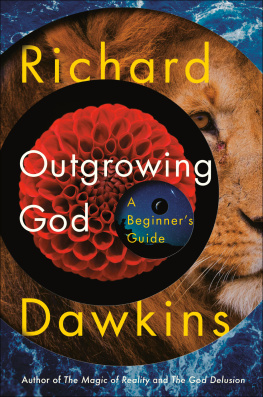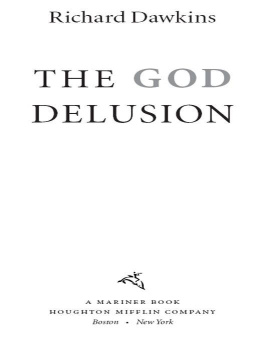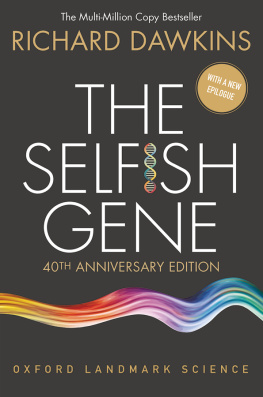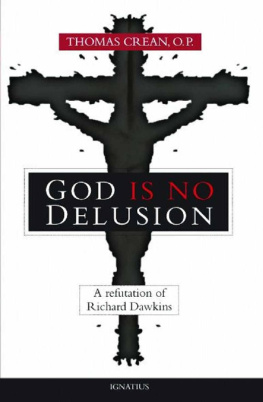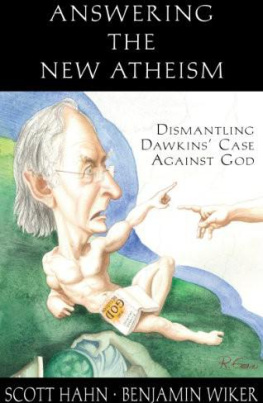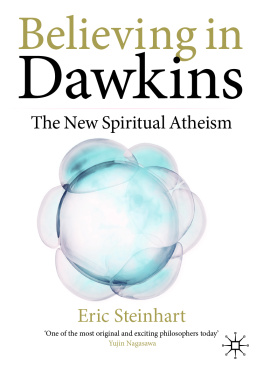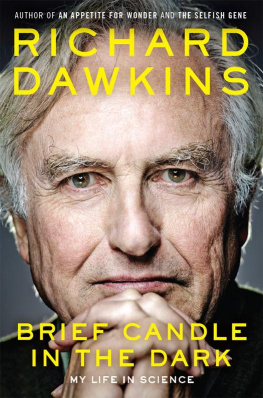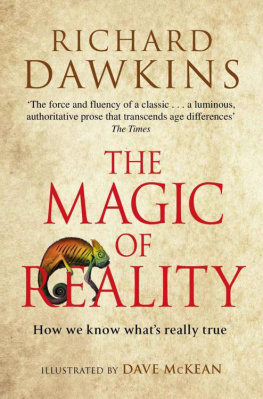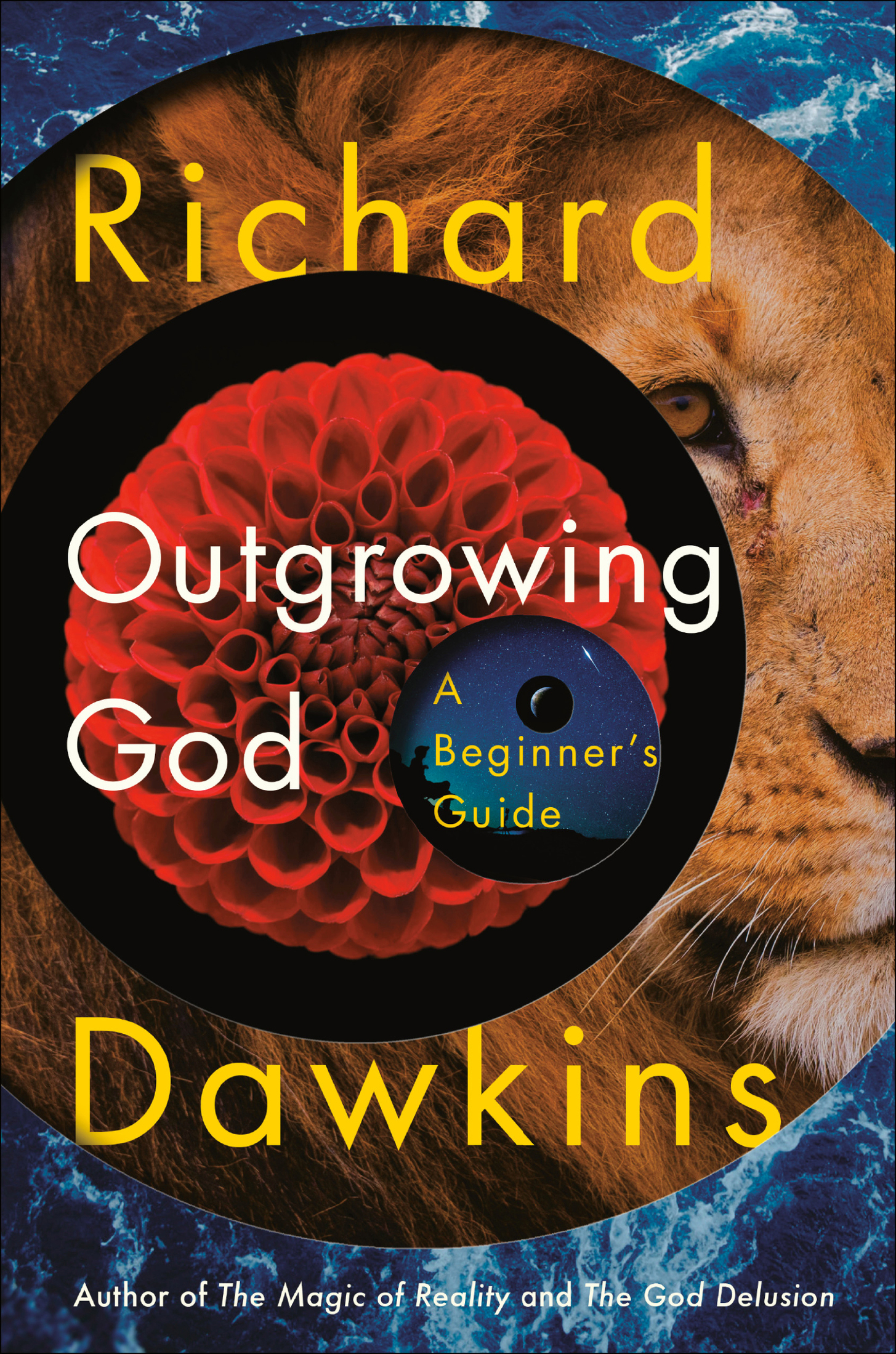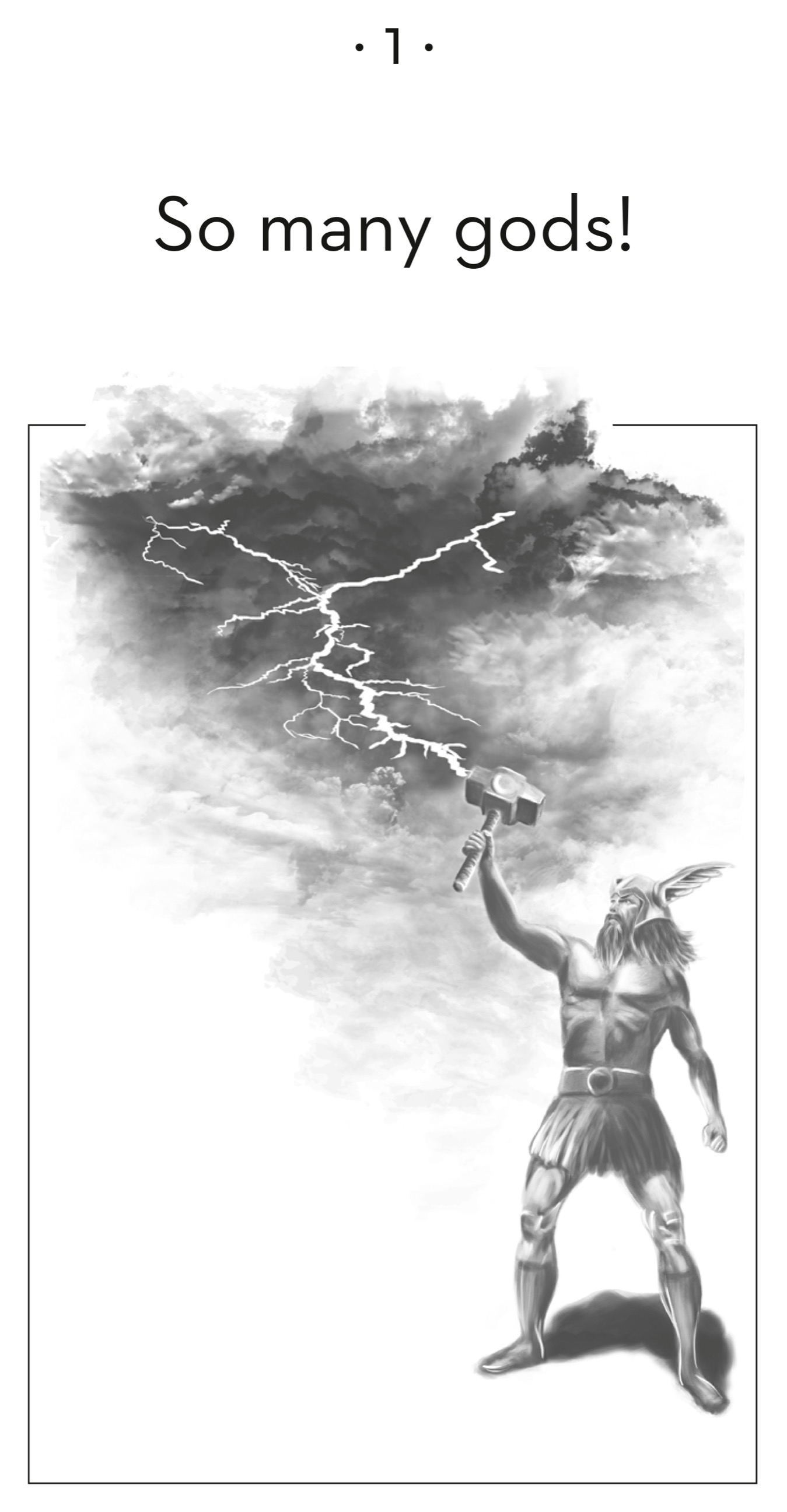Contents
Landmarks
Print Page List
Copyright 2019 by Richard Dawkins Limited
All rights reserved.
Published in the United States by Random House, an imprint and division of Penguin Random House LLC, New York.
R ANDOM H OUSE and the H OUSE colophon are registered trademarks of Penguin Random House LLC.
Originally published in hardcover in Great Britain by Bantam Press, an imprint of Transworld Publishers, a Penguin Random House UK Company, in 2019.
Photo credits are located on .
L IBRARY OF C ONGRESS C ATALOGING - IN -P UBLICATION D ATA
Names: Dawkins, Richard, author.
Title: Outgrowing God : a beginners guide / Richard Dawkins.
Description: New York : Random House, 2019. | Includes index.
Identifiers: LCCN 2019016019 | ISBN 9781984853912 | ISBN 9781984853936 (ebook)
Subjects: LCSH: Atheism.
Classification: LCC BL2747.3 .D385 2019 | DDC 211/.8dc23
LC record available at https://lccn.loc.gov/2019016019
Ebook ISBN9781984853936
randomhousebooks.com
Chapter illustrations by Jana Lenzova
Line illustrations by Global Blended Learning Ltd.
Cover design: Keenan
Cover images (via Getty Images): Roger Harris (Earth), Ronald Risman (silhouette of person), Mike Hall (flower), Sergio Pitamitz (lion), Jeffrey Conley (ocean)
v5.4
a
Contents
Do you believe in God?
Which god?
Thousands of gods have been worshipped throughout the world, throughout history. Polytheists believe in lots of gods all at the same time (theos is Greek for god and poly is Greek for many). Wotan (or Odin) was the chief god of the Vikings. Other Viking gods were Baldr (god of beauty), Thor (the thunder god with his mighty hammer) and his daughter Throd. There were goddesses like Snotra (goddess of wisdom), Frigg (goddess of motherhood) and Ran (goddess of the sea).
The ancient Greeks and Romans were also polytheistic. Their gods, like the Viking ones, were very humanlike, with powerful human lusts and emotions. The twelve Greek gods and goddesses are often paired with Roman equivalents who were thought to do the same jobs, such as Zeus (Roman Jupiter), king of the gods, with his thunderbolts; Hera, his wife (Juno); Poseidon (Neptune), god of the sea; Aphrodite (Venus), goddess of love; Hermes (Mercury), messenger of the gods, who flew on winged sandals; Dionysos (Bacchus), god of wine. Of the major religions that survive today, Hinduism is also polytheistic, with thousands of gods.
Countless Greeks and Romans thought their gods were real prayed to them, sacrificed animals to them, thanked them for good fortune and blamed them when things went wrong. How do we know those ancient people werent right? Why does nobody believe in Zeus any more? We cant know for sure, but most of us are confident enough to say we are atheists with respect to those old gods (a theist is somebody who believes in god(s) and an atheist a-theist, the a meaning not is someone who doesnt). Romans at one time said the early Christians were atheists because they didnt believe in Jupiter or Neptune or any of that crowd. Nowadays we use the word for people who dont believe in any gods at all.
Like you I expect, I dont believe in Jupiter or Poseidon or Thor or Venus or Cupid or Snotra or Mars or Odin or Apollo. I dont believe in ancient Egyptian gods like Osiris, Thoth, Nut, Anubis or Horus his brother who, like Jesus and many other gods from around the world, was said to have been born to a virgin. I dont believe in Hadad or Enlil or Anu or Dagon or Marduk or any of the ancient Babylonian gods.
I dont believe in Anyanwu, Mawu, Ngai or any of the sun gods of Africa. Nor do I believe in Bila, Gnowee, Wala, Wuriupranili or Karraur or any of the sun goddesses of Australian aboriginal tribes. I dont believe in any of the many Celtic gods and goddesses, such as Edain the Irish sun goddess or Elatha the moon god. I dont believe in Mazu the Chinese water goddess or Dakuwaqa the Fijian shark god, or Illuyanka the Hittite dragon of the ocean. I dont believe in any of the hundreds and hundreds of sky gods, river gods, sea gods, sun gods, star gods, moon gods, weather gods, fire gods, forest godsso many gods to not believe in.
And I dont believe in Yahweh, the god of the Jews. But its quite likely you do, if you were brought up a Jew, a Christian or a Muslim. The Jewish god was adopted by the Christians and (under the Arabic name, Allah) the Muslims. Christianity and Islam are offshoots of the ancient Jewish religion. The first part of the Christian Bible is purely Jewish, and the Muslim holy book, the Quran, is partly derived from Jewish scriptures. Those three religions, Judaism, Christianity and Islam, are often grouped together as the Abrahamic religions, because all three trace back to the mythical patriarch Abraham, who is also revered as the founder of the Jewish people. Well meet Abraham again in a later chapter.
All those three religions are called monotheistic because their members claim to believe in only one god. I say claim to for various reasons. Yahweh, todays dominant god (whom Ill therefore spell with a capital G, God) started out in a small way as the tribal god of the ancient Israelites who, they believed, looked after them as his chosen people. (Its a historical accident the adoption of Christianity as the Roman Empires official religion by the Emperor Constantine in AD 312 that led to Yahwehs being worshipped around the world today.) Neighbouring tribes had their own gods who, they believed, gave them special protection. And although the Israelites worshipped their own tribal god Yahweh, they didnt necessarily disbelieve in the gods of rival tribes, such as Baal, the fertility god of the Canaanites; they just thought Yahweh was more powerful and also extremely jealous (as we shall see later on): woe betide you if he caught you flirting with any of the other gods.
The monotheism of modern Christians and Muslims is also rather dubious. For example, they believe in an evil devil called Satan (Christianity) or Shaytan (Islam). He goes under a variety of other names too, such as Beelzebub, Old Nick, the Evil One, the Adversary, Belial, Lucifer. They wouldnt call him a god, but they regard him as having god-like powers and he is seen, with his forces of evil, as waging a titanic war against the good forces of God. Religions often inherit ideas from older religions. The notion of a cosmic war of good versus evil probably comes from Zoroastrianism, an early religion founded by the Persian prophet Zoroaster, which influenced the Abrahamic religions. Zoroastrianism was a two-gods religion, the good god (Ahura Mazda) battling it out with the evil god (Angra Mainyu). There are still a few Zoroastrians about, especially in India. Thats yet another religion I dont believe in and probably you dont either.
One of the weirder accusations levelled at atheists, especially in America and Islamic countries, is that they worship Satan. Of course, atheists dont believe in evil gods any more than they believe in good ones. They dont believe in anything supernatural. Only religious people believe in Satan.

